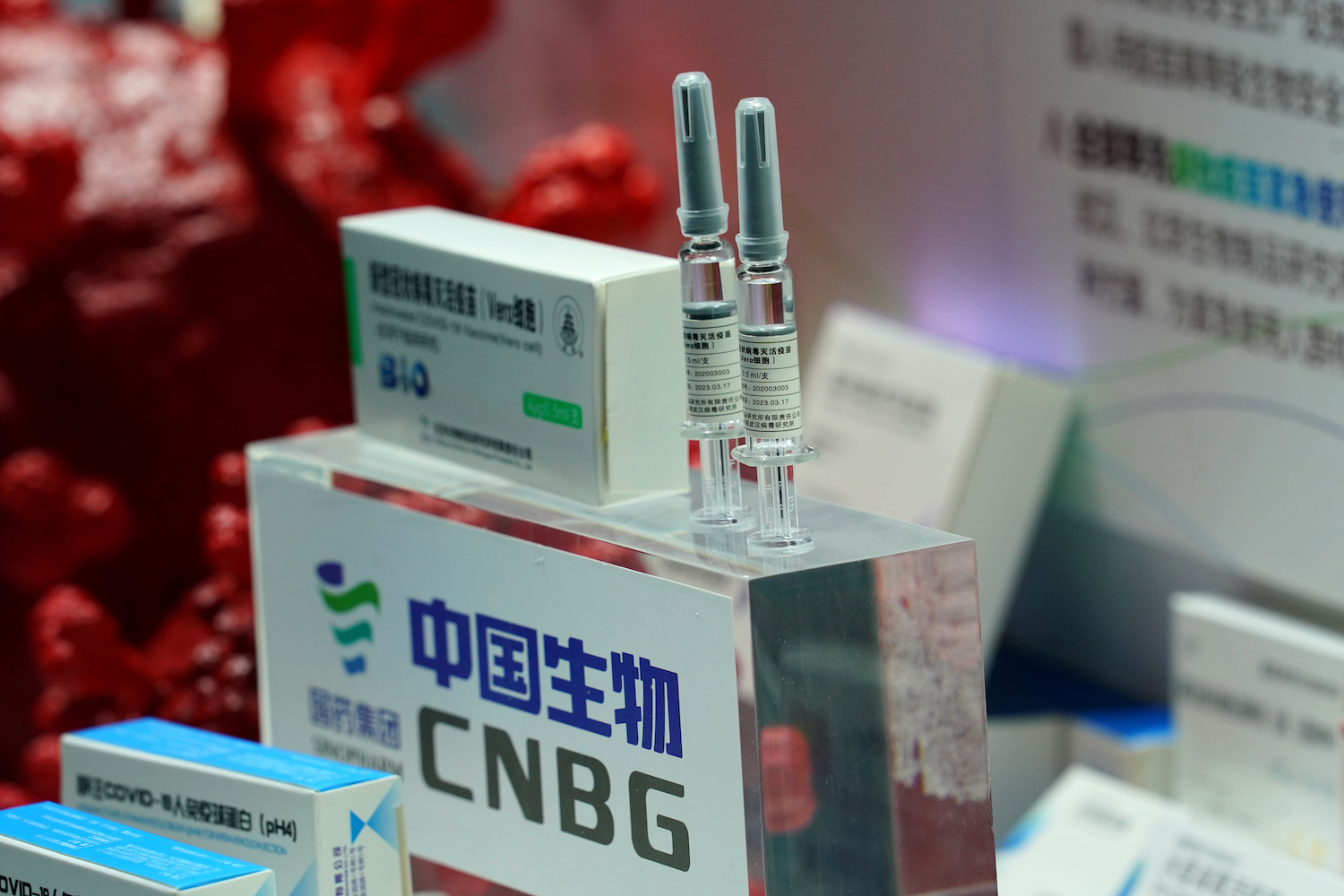(ATF) Around the world there are more than 100 coronavirus (Covid-19) vaccine projects and among them are six Chinese vaccines that have entered clinical trials. Two, developed by China Biological, have entered the phase III trial stage and appear the most likely to be mass produced.
On Thursday, September 24, the 13th China Bioindustry Conference was held in Wuhan. Zhong Nanshan, winner of the “Medal of the Republic” and an academic from the Chinese Academy of Engineering, spoke at the gathering and said it would take one to two years to complete large-scale vaccination of the Chinese population.
See video link: https://3w.huanqiu.com/a/42639d/400oLDQo571?agt=8
In regard to China Biotech’s two Covid-19 vaccines, Zhou Song, the general counsel of Sinopharm Group, told China’s main state media outlets, such as CCTV and Voice of China, there is a one-to-two-year timeline in place under which the whole Chinese population will be vaccinated.
Zhou said that 28 days after people are vaccinated, all “test subjects” produced high-tier antibodies that are sufficient to resist the coronavirus.
Zhou said in developing the vaccine one has to to isolate the virus strain, and it is just like choosing a “seed” – you have to choose a good “seed” to do this, he said. They then activate the virus function from ten to hundreds of times, so that it ‘kills’ the live virus and loses its ‘infectivity’ and ability to replicate. At the same time, scientists retain part of the function that stimulates the body’s immune response, and finally it undergoes “purification”. So that, after taking the vaccine, people are immune to the Covid-19 virus 28 days later, he said.
Zhou Song said a total of two doses of the new vaccine were required, with an interval of two to four weeks. After the first dose, studies showed that antibodies were generally produced within seven days. And 28 days after the second dose, the positive conversion rate of neutralising antibodies was 100%, possibly for one to three years.
With the first version of the vaccine the antibodies disappeared in people’s bodies within three to six months. By adding the booster shot, immunity lasted longer. Zhou Song explained that time the vaccine protects people could not be accurately ascertained – they said one to three years, because they were still observing patients and how long the vaccine protects them.
Zhou Song said the new vaccine may not need to be given once a year like the flu vaccine.
“It doesn’t look like flu at the moment; because influenza is a different strain of virus – to produce an influenza vaccine, it must change every year. Although Covid-19 is currently undergoing several subtypes of mutation, it is still the Covid-19 virus.
But he predicted that vaccines would also manage mutated varieties in coming years.
Zhou said: “As for the virus mutation that everyone is worried about, which would cause the vaccine to be useless, the new vaccine will have no problem in dealing with these mutated viruses in the next few years.”
Covid-19 virus strains from Beijing, Russia, Britain, Austria and the United States were used in neutralisation crossover tests conducted with the new vaccine, and the results showed that all were 100% successful.
“That is to say, there are indeed several subtypes of the virus that are mutating, but its main gene sequence and protein level have not fundamentally changed,” Zhou said.
China National Biotech official said recently it was hoped that the group’s two vaccines will get conditional regulatory approval for general public use this year.
CNBG is a subsidiary of state-owned China National Pharmaceutical Group (Sinopharm).
























